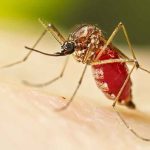Imphal, November 19: Acknowledging the dangerous impacts of antibiotic consumption, “World Antibiotic Awareness Week” was observed at Indian Medical Association Hall, Lamphelpat yesterday.
It was organised by Integrated Disease Surveillance Programme (IDSP) under National Health Mission.
Antibiotics sale in the state is one of the highest in the country and need to take control of the situation, said director of health services, Dr. K. Rajo. One should leave the harmful habit of relying entirely on antibiotics. Once started with antibiotic dose, the dose should be completed even if one feels better with just one tablet, added Dr. Rajo.
Health minister L. Jayantakumar said the medical professionals should propagate awareness to the people about the effects and benefits to the use of Antibiotics. Citing an incident of mis-medication, the minister asserted that mis-prescription of medicines may ruin one’s life. He expressed his disappointment as there is no drug inspector in the state. He also reminded the responsibilities of health professionals in serving people that they should do their duty well even in prescribing medicines to patients.
Deputy director of health, Dr. L. Somorendro also said that the irrational use of antibiotics has affected the resistance pattern and is becoming a global problem. Giving awareness about antibiotics to public, health professionals for giving correct and needed prescriptions and policy makers to check the use of antibiotics are the need of time, he added.
According to the World Health Organistion, WHO this year’s theme of , “World Antibiotic Awareness Week” is “Seek advice from a qualified healthcare professional before taking antibiotics”.
The objective of the campaign is to make antibiotic resistance a globally recognized health issue; to raise awareness of the need to preserve the power of antibiotics through appropriate use; to increase the recognition that individuals, health and agriculture professionals, and governments must all play a role in tackling antibiotic resistance; and to encourage behaviour change and convey the message that simple actions can make a difference.
According to Centre for Disease Control and Prevention CDC antibiotic should not be applied against viral infections like the common cold, flu, most sore throats, bronchitis, and many sinus and ear infections. Widespread use of antibiotics for these illnesses is an example of how overuse of antibiotics can promote the spread of antibiotic resistance.
Antibiotic resistance is the ability of bacteria to resist the effects of an antibiotic. Antibiotic resistance occurs when bacteria change in a way that reduces the effectiveness of drugs, chemicals, or other agents designed to cure or prevent infections. The bacteria survive and continue to multiply, causing more harm.
Antibiotic resistance has been called one of the world’s most pressing public health problems. Antibiotic resistance can cause illnesses that were once easily treatable with antibiotics to become dangerous infections, prolonging suffering for children and adults. Antibiotic-resistant bacteria can spread to family members, schoolmates, and co-workers, and may threaten your community. Antibiotic-resistant bacteria are often more difficult to kill and more expensive to treat. In some cases, the antibiotic-resistant infections can lead to serious disability or even death says the Centre for Disease Control and Prevention.
Although some people think a person becomes resistant to specific drugs, it is the bacteria, not the person, that become resistant to the drugs.
The WHO says the world urgently needs to change the way it prescribes and uses antibiotics. Even if new medicines are developed, without behaviour change, antibiotic resistance will remain a major threat. Behaviour changes must also include actions to reduce the spread of infections through vaccination, hand washing, practising safer sex, and good food hygiene.
Antibiotic resistance is rising to dangerously high levels in all parts of the world. New resistance mechanisms are emerging and spreading globally, threatening our ability to treat common infectious diseases.
A growing list of infections such as pneumonia, tuberculosis, blood poisoning, gonorrhoea, and foodborne diseases are becoming harder, and sometimes impossible, to treat as antibiotics become less effective.
Without urgent action, we are heading for a post-antibiotic era, in which common infections and minor injuries can once again kill, says WHO
Dr.L Ashananda Singh, Regional Director, MoHFW, Imphal and Prof. AK. Brozen Singh, HoD, Community Medicine, RIMS attended the function as Guests of Honour. Officials and staffs of Health and Family Welfare Department, Nursing Students, Health Workers and others were also present at the function.












